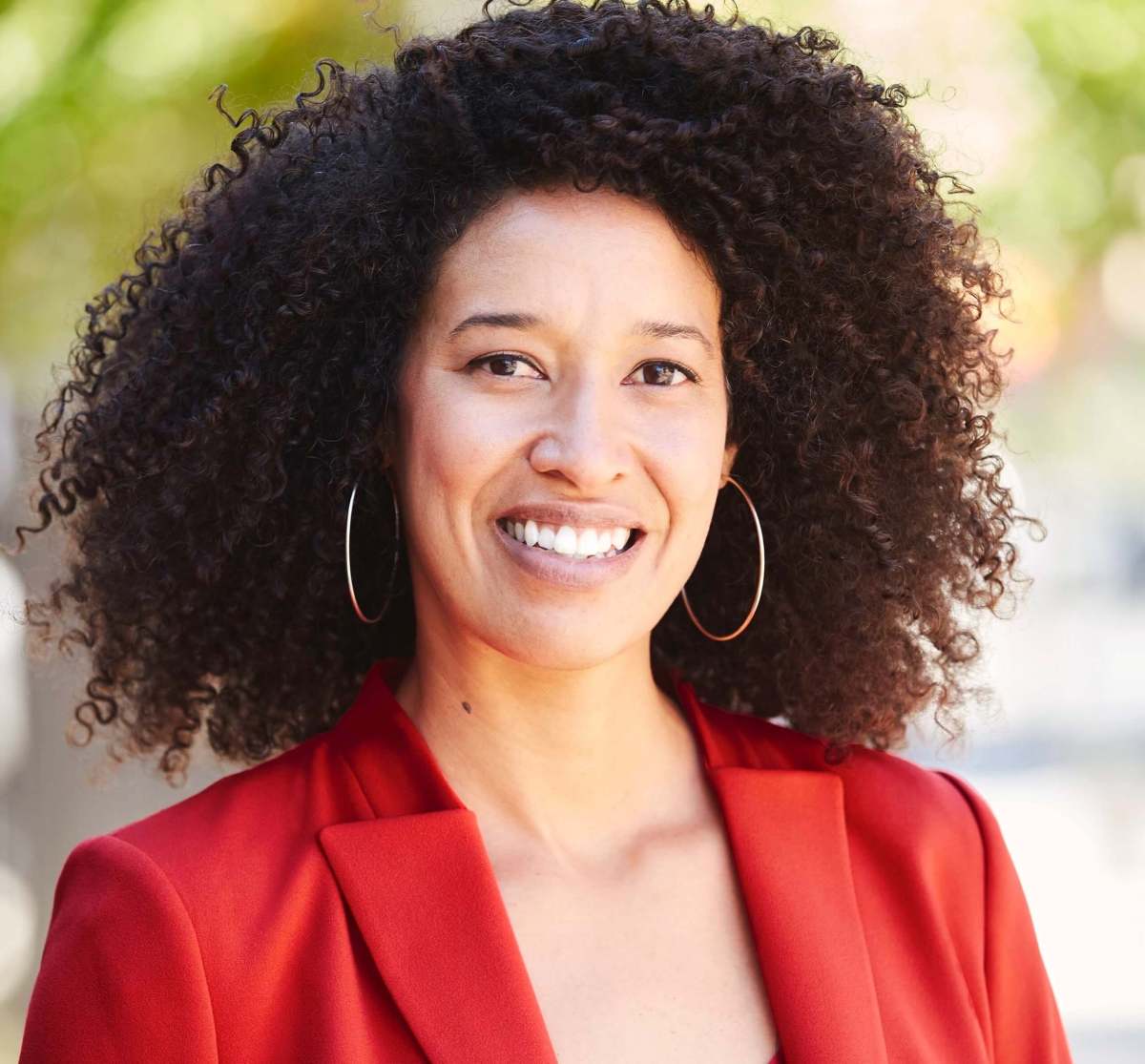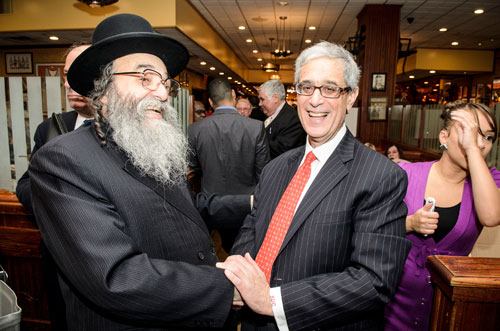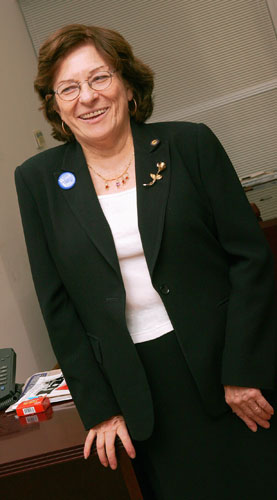Insurgent Brooklyn political candidates are accusing Mayor Bill de Blasio and the Kings County Democratic party of forcing insurgent progressive candidates off the June 23 primary elections, after the city Board of Elections officials disqualified several outsider politicos from appearing on the ballot at an April 22 hearing.
“For weeks we have been wondering why Mayor de Blasio has not been weighing in, and now it is clear: he is complicit with this machine power grab. The mayor is working to undermine Democracy in the 37th District for his own political purposes,” said Sandy Nurse, an upstart candidate for the currently-unoccupied Bushwick Council seat.
Nurse and a handful of other progressives vying for political seats around Brooklyn did not make the primary ballot due to legal challenges to the signatures needed for their names to appear.
Greenpoint district leader Nick Rizzo, who was not facing any opponents in his re-election, submitted 200 petition signatures — significantly more than the required 150 — but elections bureaucrats ruled him 19 short after the challenges, and he accused party honchos of plotting to oust him for being vocally critical of the party machine.
“I’m not a church mouse, and I 100 percent feel that I’ve received disparate treatment from other district leaders,” he said. “There’s a district leader that hasn’t gone to a meeting in a year. No one bothered with any of the other incumbents.”
Anyone can file a challenge to the validity of a candidate’s signatures, arguing that the signers don’t actually live in the district, or on a variety of other technicalities — which can be as mundane as an address crossing onto two lines.
The challenger to Rizzo’s signatures also contested petitions by Democratic Socialist state Sen. Julia Salazar for Bushwick, and by Samy Nemir-Olivares, another district leader candidate for the same neighborhood — but both of those prevailed and got on the ballot, according to board of elections officials.
The recent spate of challenges forced some of the candidates to show up in-person at the Board of Elections Manhattan offices to argue their case in the middle of the global COVID-19 pandemic — despite the fact that two agency employees died of coronavirus-related complications.
At the April 22 hearing, the bureaucrats announced that Governor Andrew Cuomo’s executive order to lower the petitioning requirements by 70 percent due to the pandemic did not apply for the Bushwick Council primary on June 23, because the directive only changed state election law and not the New York City Charter — forcing Council candidates to prove that they’d collected the full 450 signatures.
That decision disqualified all candidates for that seat’s primary election except for Darma Diaz, the local district leader who has the backing of party boss Rodneyse Bichotte — making Diaz effectively unchallenged in the June 23 race, and nearly guaranteeing her a victory in the November 2020 general election.
Complicating matters further, Nurse will not appear on the ballot for the primary, but she will appear on the ballot for the special election to fill the seat right away — which will take place on June 23 as well.
If she wins the special election, she would begin serving immediately until Dec. 31, 2020. She would then be replaced by the winner of the Nov. 2020 election — which she was effectively shut out of, and which will almost assuredly be won by Diaz.
Nurse slammed the board and mayor’s decision, comparing the situation to Wisconsin, where the Republican-controlled court forced voters to cast their ballots in person amid the coronavirus pandemic.
“What Darma, Rodneyse, and the mayor are doing is no better than what rightwing Republicans did in Wisconsin,” Nurse said.
Nurse and Rizzo subsequently announced their intention to contest the Board’s decision in Kings County Supreme Court this week.
A spokesman for the party, Bob Liff of George Arzt Communications, reiterated Bichotte’s previous position that all candidates operated under the same rules and constraints — saying that the campaigns had only themselves to blame for not making the cut.
In a statement, Bichotte added that Cuomo’s executive order both upheld the city’s election process, and protected public health.
“Even in these most challenging times, in New York, we have the ingenuity and the commitment to do what the White House fails to do: protect our democratic processes and rule of law with the same vigor that we protect public health,” the party leader said.
But Rizzo said that party bigwigs were being disingenuous by claiming petition challenges were an essential part of the democratic process, when prospective politicians in other parts of the country do not face the same kinds of hurdles.
“It has been wild to see people act like this is an essential component of our democracy when most states don’t have a process like this at all and seem to get along ok,” he said. “There’s a lot of things that only New York does, pretty much, and the politicians that have succeeded at this convince themselves that this is a good thing — but it’s not.”
The mayor’s office did not immediately respond to a request for comment.
Editor’s Note: Nick Rizzo is also a columnist for Brooklyn Paper.























